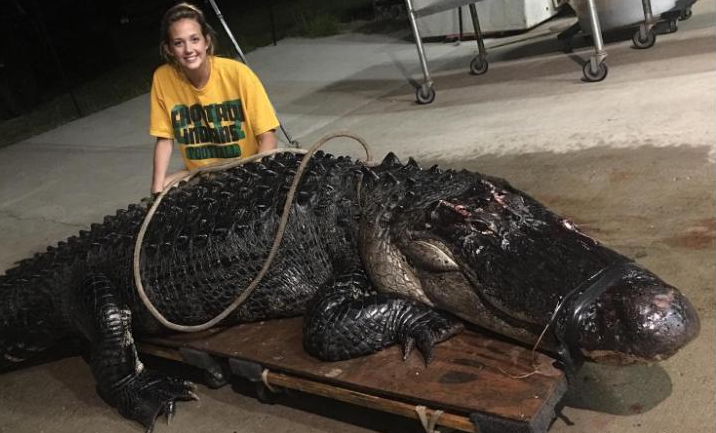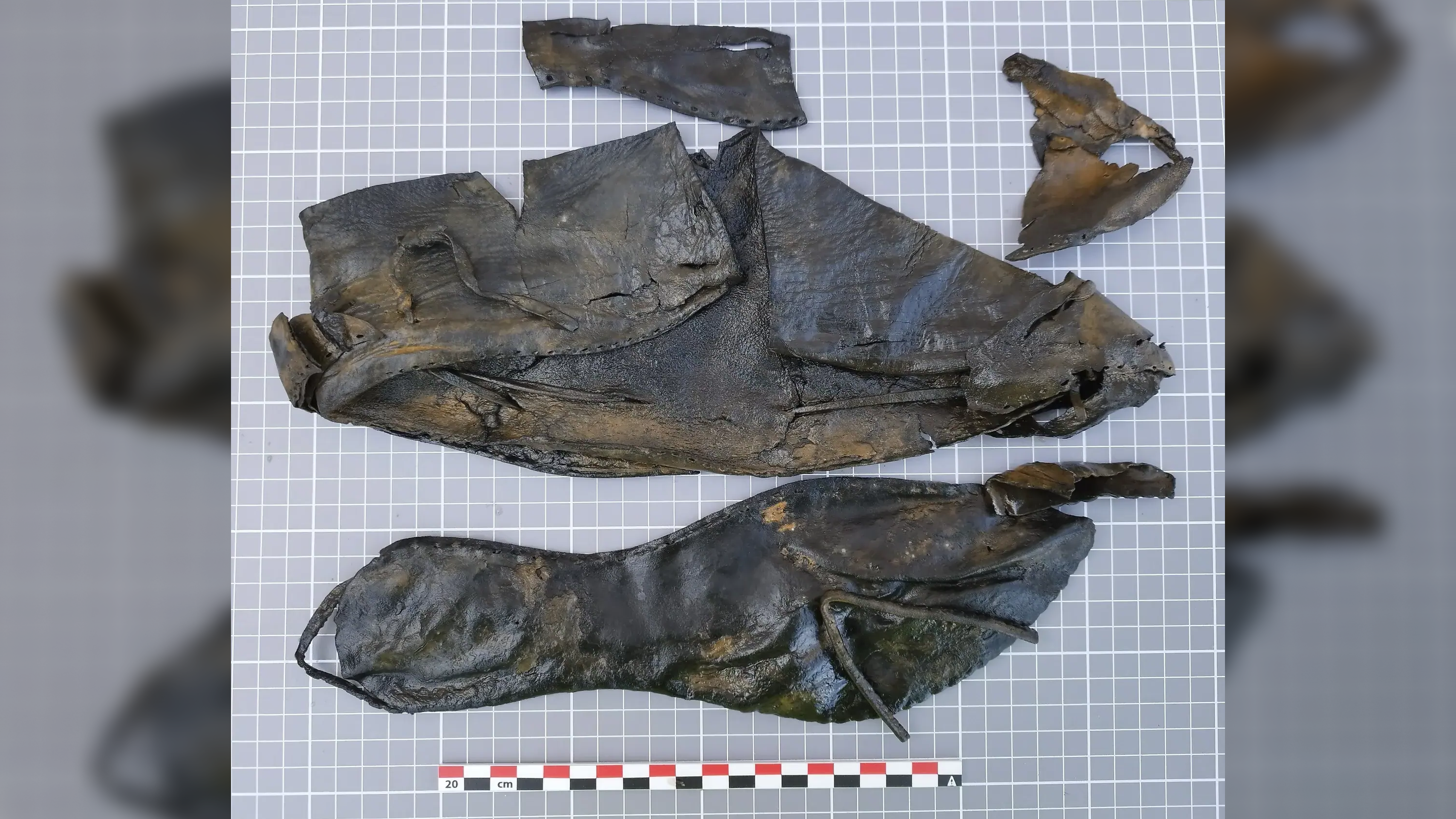This 12-Foot, 463-Lb. Alligator Went Head to Head with a Semitruck

A 12-foot-long (3.7 meters) alligator weighing a lumbering 463 lbs. (210 kilograms) was lying on its back in the middle of a highway exit when trapper Broderick Vaughan showed up in the early morning of June 3.
Vaughan, there in his capacity as a contractor for the Florida Fish and Wildlife Commission, said police patrol cars were parked on either side of the Interstate 10 exit in Tallahassee when he arrived, keeping traffic away from the massive creature. It had a large wound on the side of its head and snout, and police told Vaughan that the animal had been wandering in circles for a long time before he showed up. But by the time he got there, the reptile was still.
"I thought it was dead," Vaughan told Live Science. [What to Do If You Come Face to Face with an Alligator]
Alligators expend their energy in bursts, and Vaughan said it's typical for one of his charges to exhaust itself during the process of capture, then sit very still for hours. In this case, the injured creature was already exhausted when Vaughan slipped a snare around its neck and taped its mouth shut. However, he said, on the way home, it "came back to life."
Police determined from debris in the area that the creature sustained its wound in a collision with a semitruck, according to Vaughan. The driver, once tracked down, said he thought he'd missed the creature, police told Vaughan. Vaughan speculated that the alligator lifted its head up at the last moment and struck a "bolt" or some other protrusion from the vehicle.
Its injury was serious enough that Vaughan decided to euthanize the animal; Vaughan is forbidden from releasing alligators of this size back into the wild, and instead must either euthanize them or turn them over to farms or exhibits.
This was the third largest alligator Vaughan had ever encountered, he said. The largest was 12 feet, 8 inches (3.86 meters) long. Florida, which has a population of 1.3 million alligators across all 67 of the state's counties, considers any alligator over 4 feet (1.2 meters) long a "nuisance" and forbids relocating those captured individuals into the wild.
Get the world’s most fascinating discoveries delivered straight to your inbox.
- Alligators vs. Crocodiles: Photos Reveal Who's Who
- Alligator Alley: Pictures of Monster Reptiles
- Crocodiles: Ancient Predators in a Modern World (Photos)
Originally published on Live Science.

